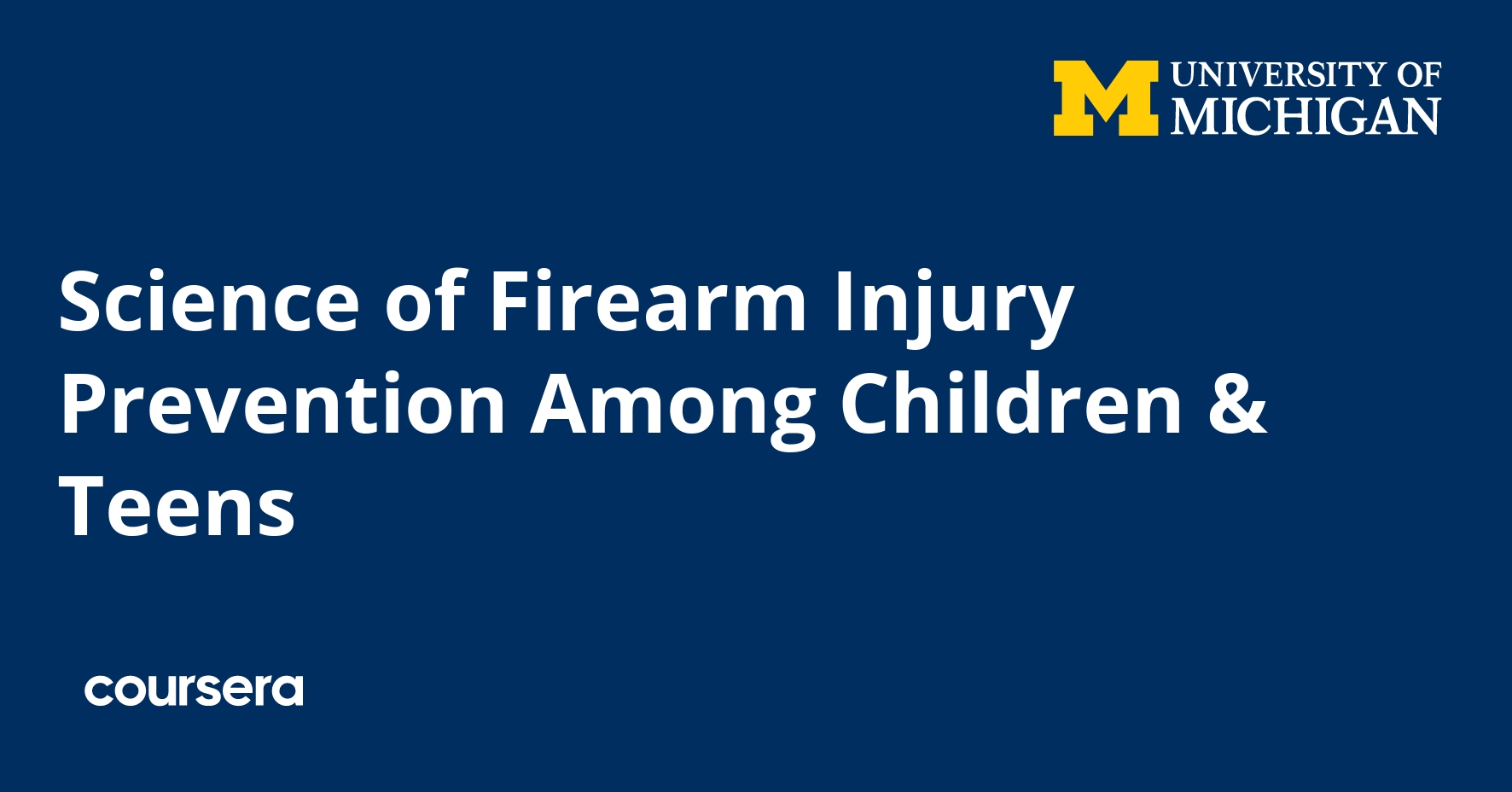Description
Firearm injuries are a leading cause of death among children and teens. However, there are many ways that these injuries and deaths can be prevented using evidence-based practices and policies.
Presented by the University of Michigan Institute for Firearm Injury Prevention and the Firearm Safety among Children and Teens (FACTS) Consortium, this course lays a broad foundation for understanding the science of pediatric firearm injury prevention and the latest research and evidence-based solution. This course covers a range of firearm injury topics including firearm-related suicide, unintentional firearm injury, firearm-related community and youth violence, firearm-related intimate partner violence, school and mass shootings, and officer-involved shootings. Through lectures and interviews from leading firearm injury researchers, and activities, readings, discussion boards, and quizzes, learners can become familiar with the epidemiology, prevention strategies, and policy efforts related to pediatric firearm injury prevention. The course also covers important gaps in existing research and future directions for expanding the knowledge base of the field.
This course is designed for multiple fields and levels of training, including students and researchers from public health, medicine, public policy, social work, nursing, criminology, sociology and psychology fields. The course is also appropriate for practitioners, educators and parents. As a learner, you will have the ability to select all modules or individual topics that interest you most. Composed of 7 modules, this course may be taken from the comfort of your home or office, and you can learn at your own pace.
Supported by a grant to the University of Michigan by the National Institutes of Health – Eunice Kennedy Shriver National Institute of Child Health and Human Development (NIH/NICHD) (Award Number: R24HD087149) and the University of Michigan Institute for Firearm Injury Prevention. The content is solely the responsibility of the contributors and does not necessarily represent the official views of the National Institutes of Health – Eunice Kennedy Shriver National Institute of Child Health and Human Development (NIH/NICHD) or the Department of Health and Human Services.
What you will learn
Overview of Child and Adolescent Firearm Injury
Firearm-Related Suicide
Unintentional Injury
Community Violence




